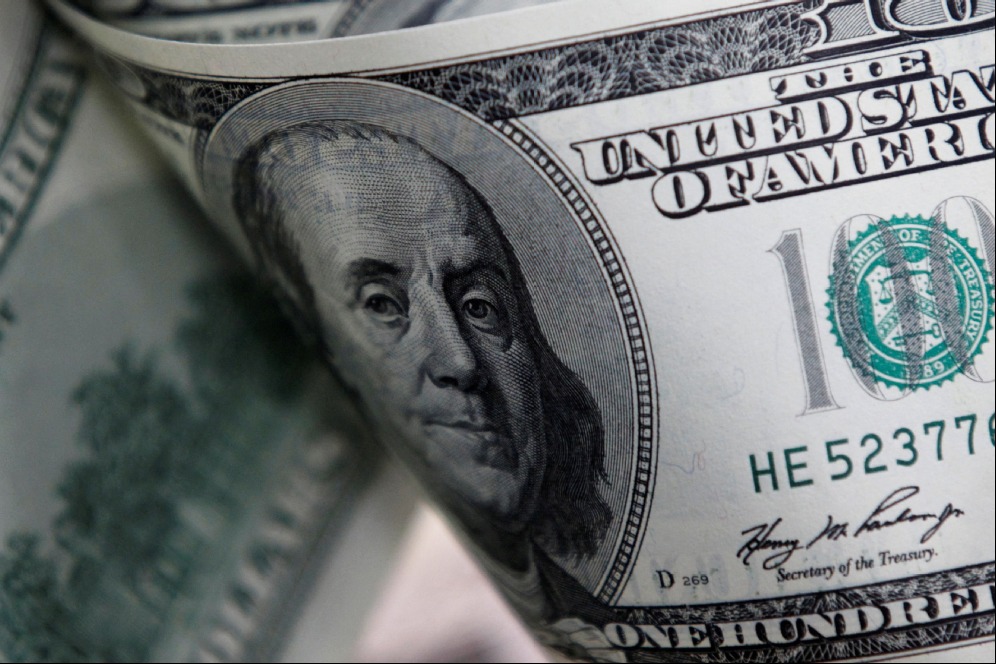Worries mount as US national debt surges
Spiraling trajectory sparks concern over economy, sustainability of dollar assets

The United States' national debt is increasing at a rapid pace and has shown no signs of slowing down, raising concerns about the long-term sustainability of US dollar assets that were formerly considered rock solid.
The amount the US owes its creditors has surpassed $37 trillion, according to a US Treasury Department report released on Aug 12. The record amount was reached sooner than projected.
In January 2020, the US Congressional Budget Office estimated that gross federal debt would not surpass $37 trillion until after fiscal year 2030.
But a combination of unprecedented federal borrowings during the COVID-19 pandemic and more recent spending measures pushed the nation to that threshold far sooner.
Maya MacGuineas, president of the Committee for a Responsible Federal Budget, a nonpartisan, nonprofit organization based in Washington, DC, described the situation as a "stunning reminder of the terrible state of federal finances" in a statement released on the organization's website on Aug 12.
MacGuineas said that $37 trillion in debt is "a mind-boggling figure that has little precedent".
"The more economically meaningful figure — debt held by the public as a share of output — is also approaching record levels. Our current debt is 100 percent of the economy — higher than any time other than just after World War II — and is rising rapidly," she said.
Michael Peterson, CEO of the New York-based Peter G. Peterson Foundation, was quoted on Aug 13 by US media network The Center Square as saying, "Our national debt is now greater than the economies of the entire eurozone and China, combined."
Chinese experts have warned that the US public debt's increase to more than $37.2 trillion — a rise of over $200 billion in just weeks since crossing the $37 trillion mark — poses severe risks to the US economy and potential damage to the credibility of the US dollar.
Luo Zhenxing, an associate research fellow at the Chinese Academy of Social Sciences' Institute of American Studies, emphasized that the escalating debt burden has resulted in surging interest payments.
These payments now place a significant strain on US federal finances and risk displacing other essential government investments, Luo said.
According to the US Government Accountability Office, the US government's spending on net interest in fiscal year 2024 exceeded expenditures on some of the largest categories of federal spending, such as Medicare and national defense.
Undermining confidence
"Rising debt limits the government's ability to deploy fiscal stimulus policies in future crises and undermines investor confidence," Luo said.
He also expressed worries over the credibility of the US dollar, raising the risk of a fiscal crisis and a shaky economy. "If the US debt continues to rise without effective measures to address it, it could erode global confidence in the dollar," Luo said.
"A loss of faith in the dollar could lead foreign holders to reduce their holdings in the US Treasury bonds, potentially causing a sharp depreciation of the dollar. Such a scenario could in turn trigger worldwide financial panic, stock market turmoil and commodity price spikes, destabilizing the global economy," he added.
Song Guoyou, deputy director of the Center for American Studies at Fudan University in Shanghai, highlighted the US challenges in addressing its deficit, given its current fiscal revenue and expenditure dynamics.
"With defense spending remaining high and mandatory expenditures steady, alongside a decrease in revenue due to recent tax cuts under the 'One Big Beautiful Bill Act', the US deficit situation is unlikely to improve anytime soon," he said.
The Congressional Budget Office projected in July that nearly $3.4 trillion more in deficit spending will be added over the next decade. It also estimated in May that if the current US fiscal policies remain unchanged, the nation's federal debt held by the public could soar from 100 percent of GDP in 2025 to 156 percent by 2055.
Although the Donald Trump administration has attempted to reduce its fiscal deficit through interest rate cuts and tariff increases, experts cautioned that these measures may offer short-term relief but create more significant problems in the long run.
Song noted that considering the complex and interconnected nature of the global economy, US policies designed to address the immediate debt may inadvertently create new challenges.
"The US debt dilemma has become a major source of uncertainty and one of the deepest challenges in the modern world economy."
yangran1@chinadaily.com.cn

































